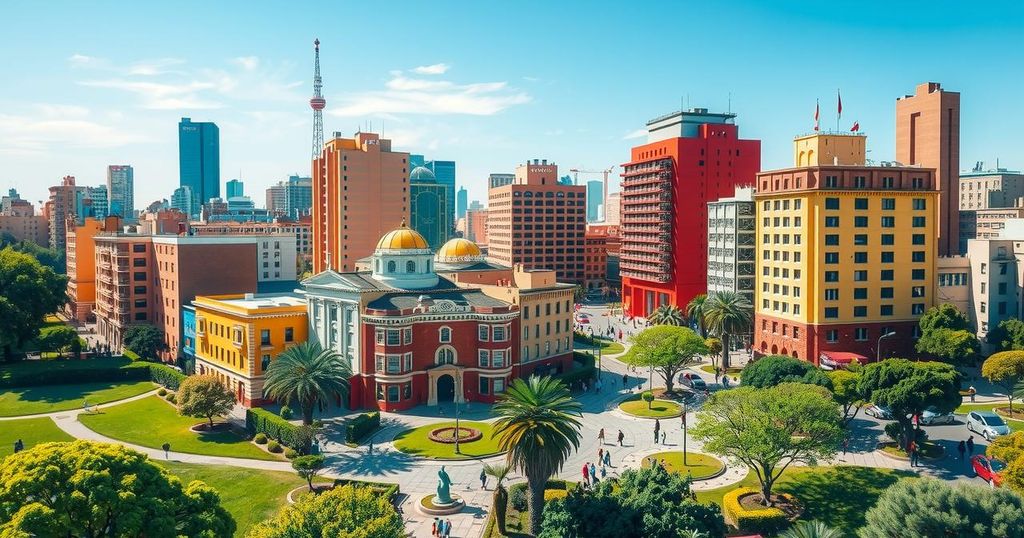Argentina’s New Immigration Policies Raise Concerns Over Tourism and Travel
In a major shift, Argentina’s government led by Javier Milei has implemented stricter immigration policies, requiring proof of income for residency, tightening citizenship requirements, and expediting deportations for minor offenses. These changes, criticized as politically motivated and potentially harmful to the tourism sector, may deter travelers and reshape perceptions of Argentina as an open destination. The implications extend beyond national borders, potentially influencing immigration policies across Latin America.
Argentina’s immigration policies are undergoing a dramatic overhaul under President Javier Milei, who recently signed new regulations that have sparked considerable debate. These moves, reminiscent of certain policies from the Trump administration in the United States, have raised serious concerns regarding the potential effects on immigration, tourism, and international travel in the South American nation. As the country braces for upcoming elections, many critics accuse these changes of being politically motivated rather than a genuine effort to tackle immigration issues.
The executive order issued on May 10, 2025, marks a significant change in how Argentina approaches immigration. The new rules impose tougher requirements for individuals pursuing citizenship and residency, demanding proof of income and more extensive documentation. This shift highlights a noticeable departure from Argentina’s historically open stance towards foreign nationals, raising questions about the long-term impact on the tourism sector, particularly for travelers from regions seeing increased migration to Argentina.
Under the fresh regulations, those applying for citizenship must either reside in the country for two continuous years or invest significantly in Argentine assets. Additionally, obtaining permanent residency now necessitates proof of sufficient income along with a clean criminal background from the applicant’s home country. As a result, the barriers for migrants seeking entry into Argentina are now significantly heightened, effectively reversing the welcoming tradition that was once emblematic of the nation.
The decree also authorizes quicker deportations for immigrants who enter illegally, commit minor offenses, or use false documents. This is a notable shift from previous guidelines that limited deportations to individuals convicted of serious crimes. Critics argue that by speeding up deportation processes, due process rights could be compromised, leaving migrants in vulnerable situations.
Moreover, Milei’s regulations mandate foreigners to pay for public services such as healthcare and education, which were historically free for all residents. This represents a significant shift that could deter many visitors, particularly those reliant on affordable healthcare. Justifying the change, government spokesperson Manuel Adorni highlighted the necessity of ensuring the sustainability of social systems, though many remain skeptical about the fairness of these policies.
The timing of these changes, right before the national elections, raises eyebrows. Observers speculate that the government may be attempting to rally support from conservative voters amid fears of rising immigration, suggesting a potential misuse of immigration concerns to gain political traction. Critics like Pablo Ceriani Cernadas from the UN Committee on Migration note that the policies might misrepresent the actual scope of immigration in Argentina, where foreign residents account for only a small fraction of the total population.
The implications for the travel and tourism industry are substantial. Traditionally viewed as a welcoming destination, Argentina’s new immigration policies may alter the perception of the country among international travelers. Tour operators and travel agencies may need to rethink their strategies in response to the reduced influx of tourists, especially those from areas that once enjoyed unfettered access.
With stricter immigration requirements on the horizon, a downturn in international arrivals may be possible, particularly as concerns regarding the ability to stay legally begin to percolate among potential visitors. For the myriad businesses that depend on foreign tourists, this could present new challenges when staying informed about the complex and evolving immigration landscape.
What could this mean for Latin America as a whole? As Argentina begins a trend toward tighter immigration policies, other countries in the region may follow suit, witnessing a shift in immigration norms. As travelers reassess their options, potential visitors might seek out other South American nations like Brazil or Uruguay, which have historically posed fewer barriers.
Argentina’s recent overhaul of immigration policies signifies a notable shift in the country’s relationship with migrants and international visitors. While aimed at addressing perceived social strains, these changes could have unintended consequences for its tourism industry and international travel perceptions, especially in the context of looming elections. Moving forward, it remains critical for travelers and industry professionals to stay informed about these evolving regulations to navigate this new landscape effectively.
Original Source: www.travelandtourworld.com




Post Comment